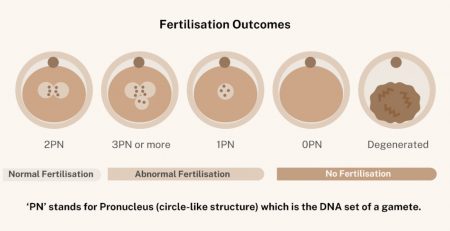Infertility can be an emotional and complex journey, but modern reproductive medicine offers effective fertility treatment options to help individuals and couples conceive. Two of the most commonly used techniques are Intrauterine Insemination (IUI) and In-Vitro Fertilisation (IVF). Each has distinct processes, benefits, and suitability depending on your diagnosis and fertility goals.
At AlphaSpecialists.sg, we understand how critical it is to choose the right treatment approach. This article outlines key differences between IUI and IVF to help you make informed decisions with the guidance of a fertility expert.
Understanding Intrauterine Insemination (IUI)
IUI is one of the least invasive assisted reproductive technologies (ART). The procedure involves placing specially prepared sperm directly into the uterus at the optimal time during the woman’s ovulation cycle.
What Happens During IUI?
- Ovulation Monitoring – Hormones or ovulation predictor kits help time the insemination to maximise the chances of fertilisation.
- Sperm Washing – A semen sample is “washed” to concentrate the healthiest sperm and remove seminal fluid, which may interfere with implantation.
- Insemination Procedure – A thin catheter is used to insert the sperm directly into the uterus. The process is typically painless and takes only a few minutes, often performed without sedation.
Who Might Benefit from IUI?
- Couples with mild male-factor infertility
- Women with unexplained infertility
- Same-sex female couples or single women using donor sperm
- Couples facing sexual dysfunction or timing challenges
Advantages of IUI
- Less expensive and less invasive than IVF
- Quick recovery; no anaesthesia needed
- Can be performed in a natural cycle or with ovulation-stimulating medications
However, success rates for IUI can be modest. According to estimates, the success rate per cycle ranges between 10% to 20%, depending on factors such as age and underlying fertility issues.
A Closer Look at In-Vitro Fertilisation (IVF)
IVF is a more advanced technique that involves stimulating the ovaries, retrieving eggs, fertilising them in a lab, and transferring a viable embryo into the uterus.
IVF Procedure Steps
- Ovarian Stimulation – Fertility drugs are administered to encourage the ovaries to produce multiple mature eggs.
- Egg Retrieval – Eggs are collected under mild sedation via a transvaginal ultrasound-guided needle.
- Fertilisation in the Laboratory – The retrieved eggs are fertilised with sperm (via conventional IVF or ICSI) in a specialised embryology lab.
- Embryo Culture and Transfer – Embryos are cultured for 3–5 days before a healthy one is selected for transfer into the uterus.
- Pregnancy Testing – After two weeks, a blood test confirms whether implantation and pregnancy occurred.
Who Should Consider IVF?
- Women with blocked or damaged fallopian tubes
- Couples with severe male-factor infertility
- Those with advanced maternal age or low ovarian reserve
- Couples who have failed to conceive through IUI
- Patients requiring genetic testing (PGT) for inherited conditions
IVF Success Rates
IVF generally offers higher success rates than IUI. According to the US CDC, IVF has a pregnancy rate of approximately 49.7% in women under 35, declining to 7.7% in women over 40. At AlphaSpecialists.sg, we combine cutting-edge technology with personalised care to optimise these outcomes.
Comparing IUI and IVF: Which is Right for You?
| Feature | IUI | IVF |
| Invasiveness | Minimally invasive | Moderately invasive |
| Procedure Duration | Few minutes | Several weeks |
| Sedation Required | No | Yes (during egg retrieval) |
| Cost | Lower | Higher |
| Success Rate | Lower (10–20%) | Higher (up to 50%) |
| Ideal For | Mild or unexplained infertility | More complex or prolonged infertility |
Next Steps
Choosing between IUI and IVF depends on your unique fertility journey, diagnosis, and goals.
Our specialists can guide you through personalised options to maximise your chances of success.
Contact our fertility team today or, if you prefer remote care, explore our teleconsult service to meet online.













Leave a Reply
You must be logged in to post a comment.